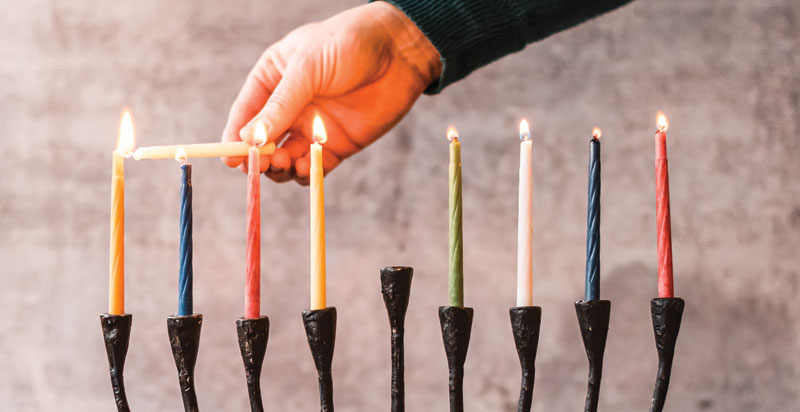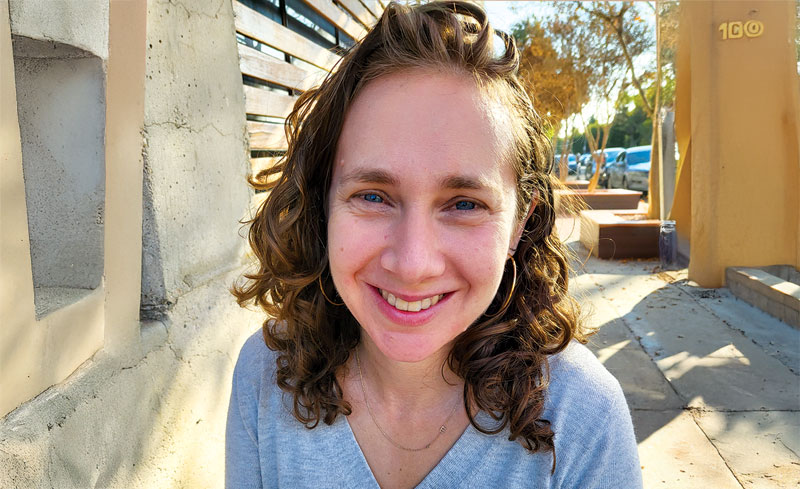The bombs that ripped through crowds of Israelis and foreign workers in Tel Aviv this weekend may have saved Yasser Arafat from making some tough decisions.
Internal and external pressures have been building on Arafat to allow comprehensive reforms of the Palestinian Authority — reforms that effectively would undermine the PA president’s grip on power.
But after Sunday’s deadly attack by the Al-Aksa Brigade, a terrorist group from Arafat’s own Fatah movement, Israel refused to allow Palestinian officials to attend a conference on PA reform in London or congregate in Ramallah to consider a draft of a Palestinian constitution.
Israeli Foreign Minister Benjamin Netanyahu said Monday that there is no need for Palestinian officials to travel abroad to conferences when they have the power at home to end terrorist attacks, but don’t use it.
Unintentionally, however, the Israeli moves may have allowed Arafat to dodge a political bullet, at least temporarily.
The PLO Central Council was scheduled to convene Thursday for what Palestinians described as a "key step in reforms," ratifying a Palestinian Authority constitution. The Central Council is made up of 128 members and serves as the bridge between the PLO’s executive branch — chaired by Arafat — and its parliament, the Palestine National Council. It would have been the PLO council’s first meeting in two years. The draft constitution calls for a series of reforms, most notably the appointment of a prime minister to serve alongside the president. The Central Council also was scheduled to study the latest draft of a "road map" toward Israeli-Palestinian peace prepared by the diplomatic "Quartet" of the United States, Russia, United Nations and the European Union.
The plan calls for an independent Palestinian state by 2005 — provided the Palestinians end terrorism and establish an accountable government.
After Sunday’s double suicide bombing in Tel Aviv, which killed 23 and wounded more than 100, Israel decided not to allow the PLO members to convene. It also blocked other Palestinian officials from traveling to London for the conference on reform.
So far, Israeli officials have identified 18 of the 23 people killed in the bombing. The officials released the names of 15 victims, 11 of whom are Israelis and four of whom are foreign workers.
The Israelis were identified as Andrei Friedman, 30, of Tel Aviv; Meir Haim, 74, of Azor; Hannah Haimov, 53, of Tel Aviv; Avi Kotzer, 43, of Bat Yam; Ramin Nasibov, 25, of Tel Aviv; Staff Sgt. Mazal Orkobi, 20, of Azor; Victor Shobayev, 62, of Holon; Boris Tepelshvili, 51, of Yehud; Sapira Shoshana Yulzari-Yaffe, 46, of Bat Yam; Lilia Zibstein, 33, of Haifa; and Amiram Zamoura, 55, of Holon.
The foreign workers were identified as Steven Cromwell, of Ghana; Nicolai Ion, 35, of Romania; Anglov Kosamov, 33, of Bulgaria; and Sabao Miahai, 39, of Romania.
The message was clear: Israel will not allow normal political life to continue in the Palestinian Authority when terrorism disrupts normal life in the heart of Tel Aviv.
Yet the postponement was only temporary.
"Sooner or later the council will convene and deliberate," said Res. Col. Shalom Harari, a research fellow at the Interdisciplinary Center in Herzliyah. "The question will be, of course, what kind of decisions it will reach, and how they will be implemented."
The draft of the constitution largely is the product of Nabil Sha’ath, the Palestinian Authority minister of planning. Sha’ath heads a committee that has been working on a Palestinian constitution for three years, with little result until now. The current draft was prepared under heavy international pressure for reform, primarily from the United States.
Though Arafat says he supports reform, he has been eager to stall the appointment of a prime minister, which could leave Arafat as a figurehead president.
The Palestinian Authority also indefinitely postponed presidential and parliamentary elections set for Jan. 20, saying it was impossible to conduct a vote while Israeli troops occupy West Bank cities and enforce curfews.
Arafat also faced a challenge over his appointment of a new prosecutor-general. The Palestinian Lawyers Union was incensed by Arafat’s decision to appoint his crony Khaled Qidra by presidential decree. Al-Kidreh was the chief prosecutor in the Palestinian Authority’s state security court, which has passed several death sentences on Palestinians accused of collaborating with Israel. Many of the trials began and ended within several hours, without proper defense for the accused and no right of appeal, according to human rights groups. Palestinian lawyers struggling to set up a proper legal process in the Palestinian Authority say Al-Kidreh is one of the officials largely responsible for the legal chaos apparent even before the outbreak of the intifada two years ago.
"The appointment is a flagrant constitutional violation," the lawyers wrote to Arafat in late December. The lawyers resolved to fight the appointment, warning that Palestinian society was being destroyed because it lacked an authentic judicial system.
The internal political struggle finds Arafat already busy on two other fronts. One is a fragile dialogue in Cairo among representatives of Fatah, Hamas and Islamic Jihad. Some statements have said the talks are aimed at temporarily halting terrorist attacks against Israelis or at least limiting them geographically, while others have said the aim is to improve coordination among the various terrorist groups. The talks, which were scheduled to resume Thursday after a break of several days, have been tendentious.
But even if they were meant to achieve a temporary cease-fire — bolstering the Labor Party’s chances in Israel’s Jan. 28 elections, as several Arab politicians have urged — terrorist attacks and attempted attacks are only escalating, Israeli security sources say. Israel has accused Arafat of sabotaging previous attempts at a cease-fire. This time, though, he would seem to have a vested interest in preventing attacks: Labor Party leader Amram Mitzna has declared that if Labor wins the elections he will negotiate with the Palestinians "without preconditions." For Arafat, who has been completely boycotted by Israeli Prime Minster Ariel Sharon, a Labor win could be a new lease on life.
Indeed, the Palestinian Authority condemned Sunday’s attack in unusually harsh terms. The fact that his own group carried out the bombing doesn’t necessarily mean Arafat was behind it, Israeli officials say, but rather shows the extent of his impotence: He can’t enforce his will on his own people in Ramallah and Gaza, let alone on his negotiating partners in Cairo.
But Israeli military restraint right now might help the Palestinian groups agree to at least scale back their attacks, Ziad Abu Ziad, a member of the Palestinain Authority’s legislative council, told JTA this week.
"Cairo could lead to a positive result, if the Israelis contribute to calming down the atmosphere," he said. "The Israelis have an influence on our politics, just like we influence your politics."
What now? Suppose the PLO Central Council does eventually convene? Abu Ziad estimated that it would take at least several weeks before the draft constitution would move on to its next destination, as the Palestinian political community is divided over whether the final draft should be ratified by the parliament or by a popular plebiscite.
But Harari was skeptical.
"Had they really wanted a constitution, they would have passed one a long time ago," he said. "It’s simply that so far Arafat managed to prevent the reform." Besides, he added, "the question is not what will be decided, but whether it will be implemented."






















 More news and opinions than at a Shabbat dinner, right in your inbox.
More news and opinions than at a Shabbat dinner, right in your inbox.